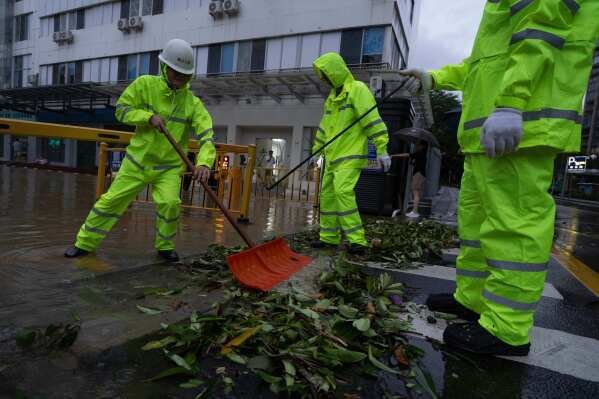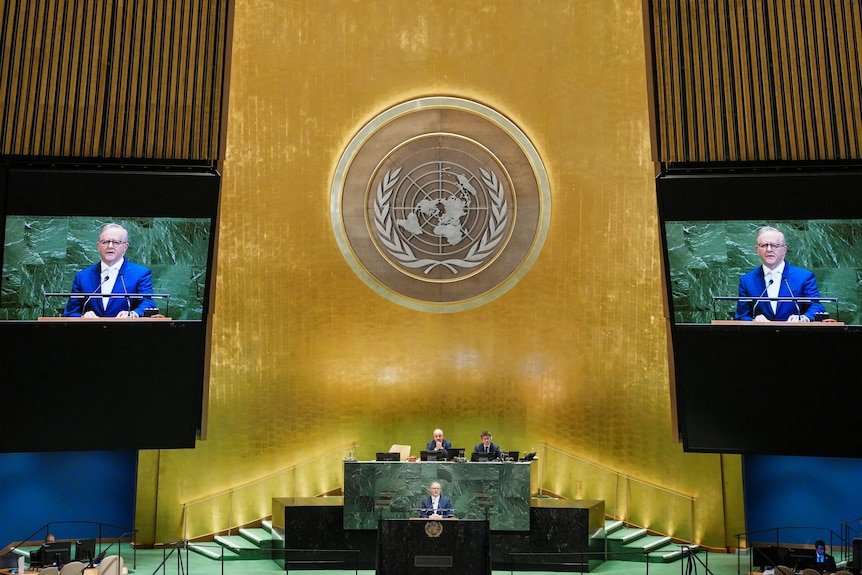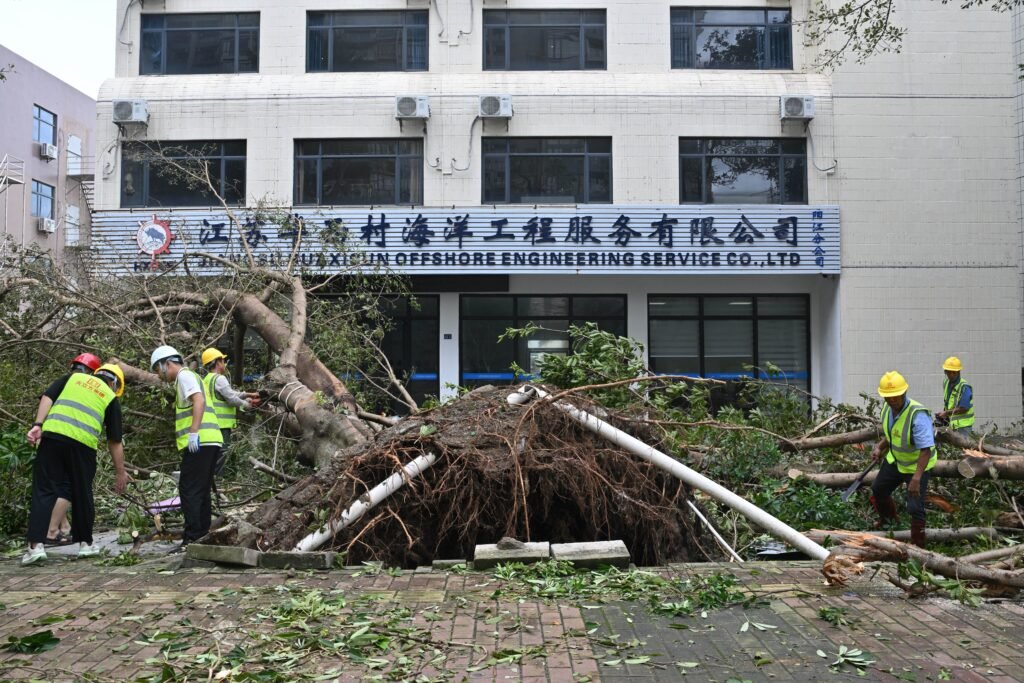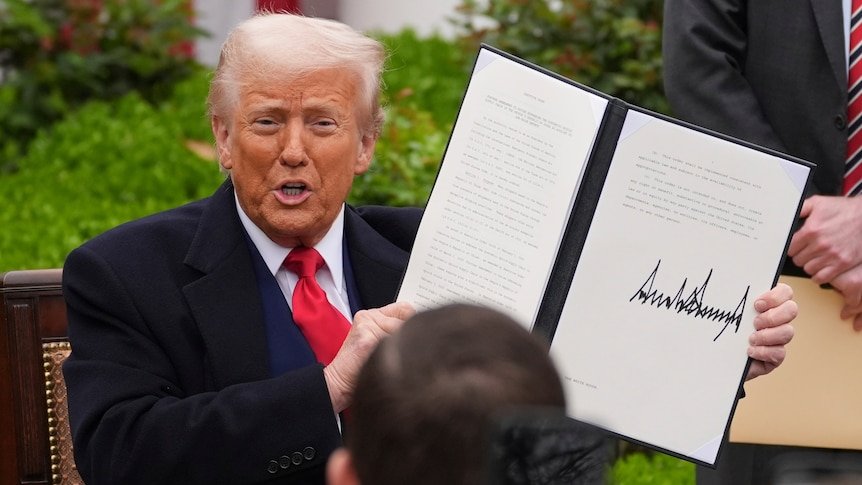By BYRON TAU, GARANCE BURKE and DAKE KANG, Associated Press
WASHINGTON (AP) — Lawmakers and activists across the political spectrum called on American tech firms to stop selling surveillance equipment to Chinese police and for Congress to examine the issue after The Associated Press reported that U.S. technology had played a far greater role than previously known in enabling human rights abuses by Beijing.
Republican Sen. Josh Hawley of Missouri told AP he wanted to summon tech companies before Congress to address how their technology exports were used. Hawley, a longtime critic of U.S. technology companies, bemoaned Silicon Valley’s general lack of cooperation with Congress on that and similar inquiries.
“I think eventually we’re going to have to subpoena these people,” Hawley said.
In a post on the social media site X this month, Hawley vowed that “Big Tech must cut ties with the CCP – or face my committee,” referring to the ruling Chinese Communist Party. Hawley sits on several Senate panels that might have jurisdiction to examine technology issues.
An AP investigation published this month revealed that U.S. technology companies to a large degree designed and built China’s surveillance state. Firms including IBM, Dell, and Cisco sold billions in technology to Chinese police and government agencies, despite repeated warnings that such tools were being used to quash dissent, persecute religious sects and target minorities. Companies named in AP’s reporting said they complied with all export control laws.
Yang Caiying, who told AP for its investigation about how her family was targeted by Chinese surveillance using American technology because of their activism in rural Jiangsu, said she was “shocked by the pivotal role that major U.S. tech companies have played” in her family’s ordeal. Yang is now collecting signatures for petitions urging Washington to bar U.S. firms from selling to Chinese police, both online and on the street.
Yang added her mother and sister were each sentenced to more than a year in prison earlier this month, but that she had no regrets about telling their story. Such reporting, Yang said, was necessary to expose “how miserable people’s lives can be when digital surveillance is combined with systematic human rights violations.”
“Without attention, China will sink into an endless abyss,” she said.
-
Yang Caiying, who is living in exile in Japan, shows a leaflet protesting Chinese state repression of her family to pedestrians in Nagoya, Japan, Friday, May 17, 2024. (AP Photo/Dake Kang)
-

FILE – Rep. John Moolenaar, R-Mich., questions witnesses during a hearing on Capitol Hill, Feb. 28, 2023, in Washington. (AP Photo/Alex Brandon, File)
-

Women in traditional costumes walk past security cameras outside the Forbidden City in Beijing, Saturday, April 12, 2025. (AP Photo/Ng Han Guan)
-

FILE – Sen. Elizabeth Warren, D-Mass., speaks during a Senate Finance Committee hearing on Capitol Hill in Washington, Thursday, June 12, 2025. (AP Photo/Jose Luis Magana, File)
1 of 4
Yang Caiying, who is living in exile in Japan, shows a leaflet protesting Chinese state repression of her family to pedestrians in Nagoya, Japan, Friday, May 17, 2024. (AP Photo/Dake Kang)
Other lawmakers from both parties urged Congress to beef up export laws to prevent more American technology from being used to fuel human rights abuses abroad.
“China has been utilizing partnerships with U.S. tech companies to build malignant ‘smart cities’ that are used for mass surveillance and human rights abuses against millions of innocent Chinese people,” said Rep. John Moolenaar, a Michigan Republican who chairs the House Select Committee on the Chinese Communist Party. The panel is charged with examining the strategic global competition between the U.S. and China.
“As executives at Nvidia and other American tech companies chase business in China, they cannot deny that their technology will be used to commit atrocities, strengthen China, and weaken America,” Moolenaar said.
Moolenaar called for American companies to work with Congress to write new laws that restrict the export of technologies that enable oppression. and work harder to keep their products from being smuggled into China.
Sen. Elizabeth Warren, a Massachusetts Democrat and ranking member of the Senate Banking committee that oversees export control processes, also called for strengthening restrictions.
“It’s deeply disturbing to see the extent to which some of the largest American tech companies will do the bidding of whoever pays the most — even if it means helping to build a high-tech surveillance state,” Warren said. “It underscores the urgency of implementing robust export controls that ensure American technology is not used to enable human rights abuses and harm U.S. interests.”
Civil society groups that work on issues related to Chinese state repression of the Tibetan and Uyghur ethnicities also echoed the call for American tech companies to exit the Chinese market, where their technologies have been used to power surveillance systems.
Tencho Gyatso, president of the International Campaign for Tibet, said she was “shocked and dismayed” by the revelations in AP’s investigation.
“I am appalled that U.S. technology companies have made millions in profits selling to China’s security services,” Gyatso said, calling on U.S. tech firms to “sever immediately any remaining ties or business relationships with China’s police state or entities affiliated with it.”
Zumretay Arkin, vice president of the World Uyghur Congress, a Munich-based organization that advocates on behalf of the Uyghurs, a predominantly Muslim Turkic ethnicity native to China’s far west Xinjiang region, said American tech companies and scientific researchers bear responsibility for ethnic repression.
“U.S. companies have to stop providing these technologies for the Chinese government,” Arkin said.
Burke reported from San Francisco and Kang reported from Beijing.
Originally Published:









